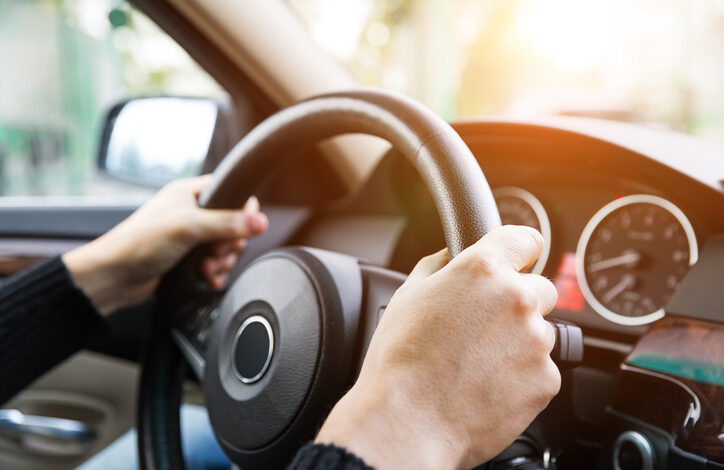The Risks of Driving an Uninsured Car: What You Need to Know

Driving is a significant part of life for many of us in the UK, providing freedom and convenience. However, with that freedom comes responsibility—most importantly, the responsibility to ensure that your vehicle is insured. Unfortunately, many drivers choose to take the risk of driving without insurance, often underestimating the potential consequences. Let’s explore the risks associated with driving an uninsured car and why it’s essential to stay on the right side of the law.
Legal Consequences
Overview of UK Law on Car Insurance
In the UK, it’s a legal requirement for all drivers to have at least third-party insurance. This means that if you cause an accident, your insurance will cover the damages to other people’s vehicles or property. Comprehensive insurance goes a step further, covering damages to your vehicle as well. However, driving without any insurance is against the law and can lead to serious repercussions. Read more about parking your uninsured car on the road by following the link.
Penalties for Driving Uninsured
If you’re caught driving without insurance, be prepared for hefty penalties. You could receive a fixed penalty notice of up to £300 and face six points on your driving licence. For repeat offenders, the consequences can be even more severe, potentially resulting in a court appearance and a fine that can reach thousands of pounds. Ultimately, the law takes uninsured driving seriously, and the financial burden can be substantial.
Financial Risks
Liability for Damages
One of the most significant risks of driving uninsured is the financial liability that comes with causing an accident. If you’re involved in a collision and you’re at fault, you could be held responsible for all damages to the other party’s vehicle and any property damage. This means paying out of pocket for repairs, which can easily run into thousands of pounds. On top of that, if anyone is injured, you may also face compensation claims that can add to your financial woes.
Costs of Legal Representation
Should the situation escalate to legal action, the costs can skyrocket. You may need to hire a solicitor to represent you in court, and legal fees can quickly add up, particularly if the case is complex. If you lose the case, you may also be ordered to pay the other party’s legal fees, compounding the financial strain.
Increased Insurance Premiums
If you have a history of driving uninsured, it’s likely to impact your future insurance premiums. Insurers view uninsured driving as a high-risk behaviour, which means that when you do apply for coverage, you’ll likely face higher rates. In the long run, the financial repercussions of being uninsured can be much greater than simply paying for insurance upfront.
Risk of Personal Injury
In addition to the financial ramifications, driving without insurance also poses risks to your personal safety. If you’re injured in an accident while uninsured, you might struggle to access medical compensation or support. The physical and emotional toll of an accident can be overwhelming, and without insurance, you may find yourself without the necessary resources to recover fully.
Impact on Others
Consequences for Other Road Users
Uninsured drivers not only put themselves at risk but also create significant consequences for other road users. If you cause an accident while uninsured, it can lead to a financial burden on innocent victims. They may be left with repair costs or medical expenses that they have to cover out of pocket, which can lead to further complications and frustration.
Strain on Emergency Services
Moreover, uninsured driving places an extra strain on emergency services and insurance companies. When accidents occur, uninsured drivers may rely on public resources, which ultimately increases costs for everyone. This situation is particularly frustrating for those who pay for their insurance and abide by the law.
Does My Car Need a SORN?
Do you have a vehicle, but you’re not going to be driving it on the road? You’re going to be in a position where you don’t want to pay for insurance but you know that you have to do something. Well, in this case, you need to register your car as SORN. This stands for statutory off-road notification. Essentially, you’re telling the DVLA that this car is yours, but you’re not going to be driving it. Therefore, you don’t need to pay for insurance or deal with road tax and an MOT. Here are some signs that you need a SORN.
It Sits on a Driveway
Do you have a car that you aren’t driving and that constantly stills on your driveway? This can cost a lot of money when you’re constantly insuring it but not driving it around. So, the best thing you can do with get a SORN. This is going to save you money and demonstrate that it’s off the road. The same applies if the car is sitting in your garage and isn’t being used.
You are Restoring It
Do you currently have a car that you aren’t driving and are gradually upgrading? Know that you don’t have to insure this either. If you’re not driving it and are just working on the vehicle, you can get a SORN. Then, when you decide that you’re finished with the upgrades or repairs, you can get it insured.
You Are Not Driving for a While
Will you be avoiding driving for a while? Whether you’ve just had surgery or there’s another reason why you won’t be travelling around, you can declare a SORN for your car. This allows you to keep it affordably and when you take to the road again, it’s easy to get insured.
Conclusion
Driving without insurance may seem like an easy way to save money, but the risks far outweigh the benefits. From hefty legal penalties to the financial burden of potential accidents, the consequences of being uninsured can be devastating. Staying insured not only protects you but also safeguards other road users and contributes to a safer driving environment for everyone.




